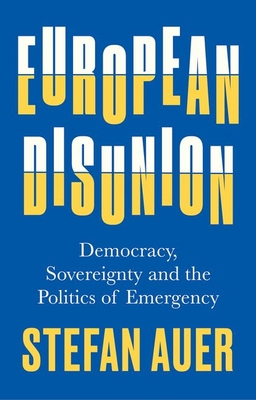European Disunion: Democracy, Sovereignty and the Politics of Emergency

European Disunion: Democracy, Sovereignty and the Politics of Emergency
The European Union means many different things to its many peoples. In Germany, for example, the European project was conceived mainly as post-national, or even post-sovereign. In France, by contrast, President Emmanuel Macron has pursued the vision of a sovereign Europe; that is, an EU that would become a formidable geopolitical actor. Yet, instead, Europe has struggled to ascertain its values abroad and even domestically, facing a sovereignist rebellion from its newer member states, such as Hungary and Poland, and the departure of Britain. The eurozone crisis has undermined the EU's economic credentials, the refugee crisis its societal cohesion, the failure to stand up to Russia its sense of purpose, and the Covid-19 pandemic its credibility as a protector of European citizens. The key argument of this book is that the multiple crises of the European project are caused by one underlying factor: its bold attempt to overcome the age of nation-states. Left unchecked, supranational institutions tend to become ever more bureaucratic, eluding control of the people they are meant to serve. The logic of technocracy is thus pitted against the democratic impulse, which the European Union is supposed to embody. Democracy in Europe has suffered as a result.
PRP: 343.58 Lei
Acesta este Prețul Recomandat de Producător. Prețul de vânzare al produsului este afișat mai jos.
274.86Lei
274.86Lei
343.58 LeiIndisponibil
Descrierea produsului
The European Union means many different things to its many peoples. In Germany, for example, the European project was conceived mainly as post-national, or even post-sovereign. In France, by contrast, President Emmanuel Macron has pursued the vision of a sovereign Europe; that is, an EU that would become a formidable geopolitical actor. Yet, instead, Europe has struggled to ascertain its values abroad and even domestically, facing a sovereignist rebellion from its newer member states, such as Hungary and Poland, and the departure of Britain. The eurozone crisis has undermined the EU's economic credentials, the refugee crisis its societal cohesion, the failure to stand up to Russia its sense of purpose, and the Covid-19 pandemic its credibility as a protector of European citizens. The key argument of this book is that the multiple crises of the European project are caused by one underlying factor: its bold attempt to overcome the age of nation-states. Left unchecked, supranational institutions tend to become ever more bureaucratic, eluding control of the people they are meant to serve. The logic of technocracy is thus pitted against the democratic impulse, which the European Union is supposed to embody. Democracy in Europe has suffered as a result.
Detaliile produsului









